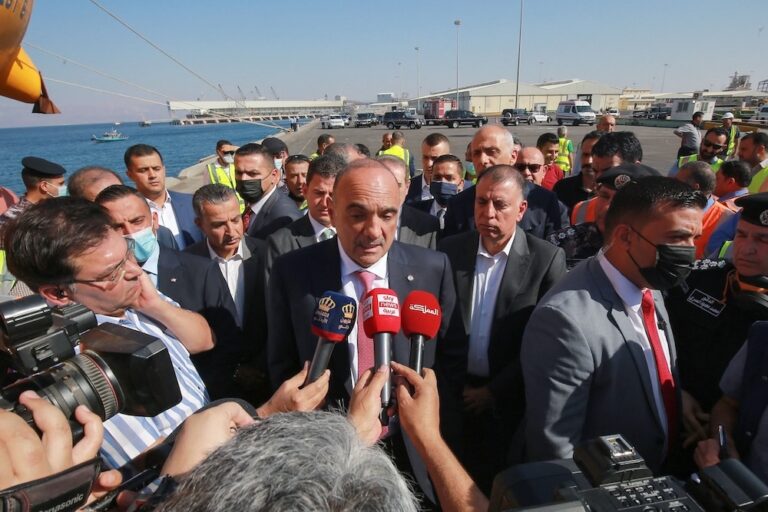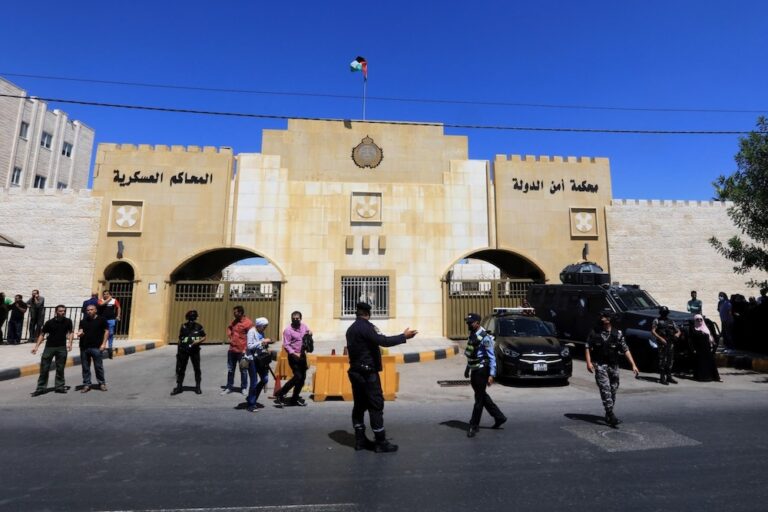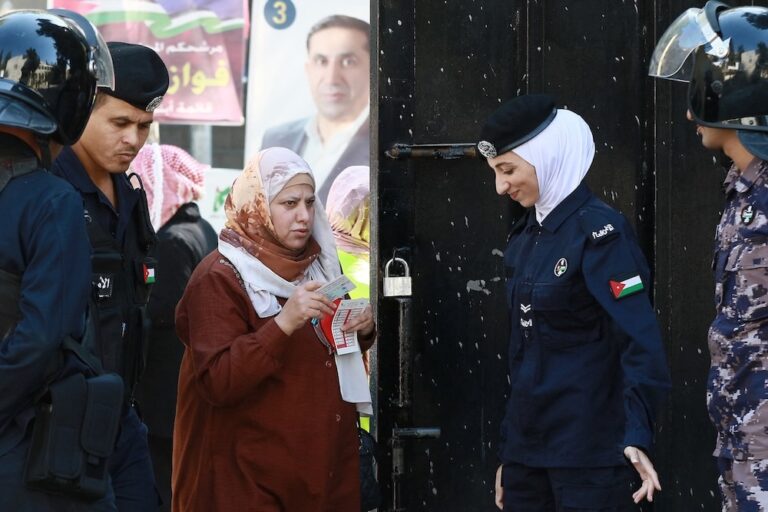Ammon News published a joint statement by 36 powerful tribal figures calling for democratic and economic reforms and warning of civil unrest if they were not implemented quickly.
(CPJ/IFEX) – New York, February 9, 2011 – A Jordanian news website was hacked on Sunday after it refused to comply with demands from security agents to remove a critical statement from Jordanian tribesmen, the outlet said. The Committee to Protect Journalists calls on Jordanian authorities to immediately investigate the attack on Ammon News, one of the most popular news websites in Jordan.
On Saturday, Ammon News published a joint statement by 36 powerful tribal figures calling for democratic and economic reforms in Jordan and warning of civil unrest if they were not implemented quickly. Because the kingdom relies on support from the leaders of Jordan’s sizable tribal population, any public split is seen as sensitive.
Sameer al-Hiyari, Ammon’s editor-in-chief, and Basel Okoor, the managing editor, received phone calls that day from security agents calling the statement “a threat to national security” and demanding that it be removed, said Banan F. Malkawi, another Ammon News editor. The callers also made what Malkawi called personal and professional threats against the top editors.
On Sunday, she said, hackers deleted the tribal leaders’ statement from the Ammon News website and manipulated other content, adding and deleting readers’ comments. The entire website became inaccessible about midday Monday, Malkawi said, and readers were redirected to a page that said: “The site was hacked because you work against the security of Jordan.” The news outlet was able to restore the site later in the day. Malkawi said work e-mail accounts, along with the personal e-mail accounts of top editors, also became inaccessible, a problem that continued into mid-week.
Ammon News accused Jordanian intelligence of hacking its website, according to a statement released by the news outlet. On Tuesday, the official Petra News Agency quoted an unidentified “official source” as having “categorically denied reports that some security authorities had hacked a news website and interfered in its work.”
“Coming after events in Tunisia and Egypt, the hacking of an independent Jordanian news website covering calls for democratic reform is particularly disturbing,” said Mohamed Abdel Dayem, CPJ’s Middle East and North Africa program coordinator. “We call on the Jordanian authorities to thoroughly investigate the attacks on Ammon News and ensure that King Abdullah’s public commitment to upholding press freedom is respected by all.”
On November 29, 2010, King Abdullah II said that “the government will continue to develop its relationship with the media so that this relationship is based on the respect of media’s right to operate freely and independently, and to access information and its dissemination.”
Another Jordanian news website was hacked last year after publishing critical material. The news site Allofjo, which said its website content was altered in offensive ways on multiple occasions in 2010, accused Jordanian authorities in October of being responsible for the repeated attacks. Allofjo said the hacking took place when articles critical of the government were published. Security officials did not respond at the time.


